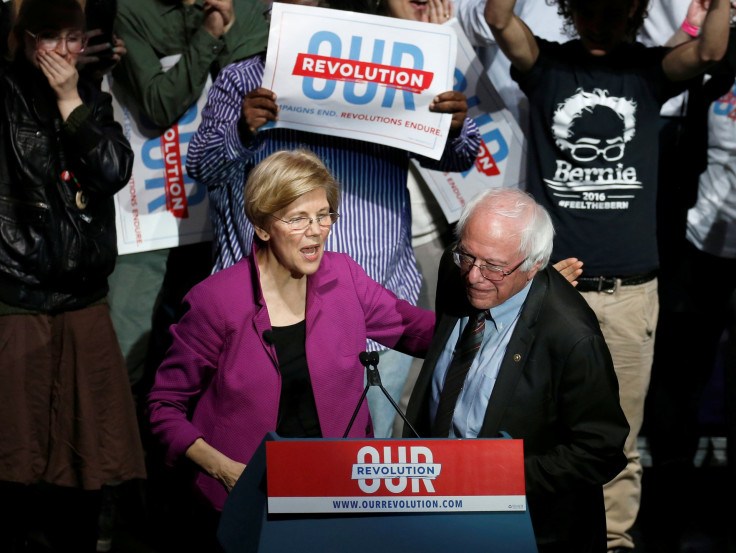Warren Slams Obama On Healthcare: 'Next Step Is Single Payer'

Senator Elizabeth Warren (D-Mass.) criticized former President Obama's model for healthcare while promoting a progressive agenda towards single-payer health care. She said the Affordable Care Act, also known as Obamacare, was based on a model of healthcare taken from a conservative playbook and that Democrats should campaign on a platform for Medicare-for-all.
"President Obama tried to move us forward with health-care coverage by using a conservative model that came from one of the conservative think tanks that had been advanced by a Republican governor in Massachusetts," she said during an interview with the Wall Street Journal in her Senate office last week. "Now it’s time for the next step. And the next step is single payer."
WOW: @SenWarren says Obama pushed healthcare policy from conservative think tanks & now she says Dems must campaign for Medicare-for-all pic.twitter.com/3G3yuxtHdL
— David Sirota (@davidsirota) June 27, 2017
The Republican governor Warren's referring to is Former Governor and 2012 Republican presidential candidate Mitt Romney, who, during his presidential campaign, lauded the legislation passed in 2006 as the precursor to Obamacare. Its official title is "An Act Providing Access to Affordable, Quality, Accountable Health Care."
READ: Bernie Sanders, Elizabeth Warren Issue Stern Rebukes To Trump Pulling Out Of The Paris Agreement
This is not the first time that Warren has been outspokenly opposed to Obama, who most Democrats won't criticize due to his popularity after his presidency. In April, she said she was "troubled" by reports that Obama took $400,000 for an upcoming speech to a Wall Street firm.
"The influence of dollars on this place is what scares me," she said in a report by Business Insider. "I think it ultimately threatens democracy."
In May, she criticized Obama and Democrats for "losing their way" because they look at big picture numbers which have little bearing on the problems of what an average American deals with on a daily basis.
"I think President Obama, like many others in both parties, talk about a set of big national statistics that look shiny and great but increasingly have giant blind spots," she told the Guardian.
"That GDP, unemployment, no longer reflect the lived experiences of most Americans," she continued. "And the lived experiences of most Americans is that they are being left behind in this economy. Worse than being left behind, they’re getting kicked in the teeth."
READ: Elizabeth Warren Talks Possible Donald Trump Impeachment, Supports Single-Payer Healthcare
The Democrat's reaction to the Senate's healthcare bill has been universal condemnation. Late Monday night, Rep. Cory Booker of New Jersey, Rep. John Lewis of Georgia, Rep. Chris Murphy of Connecticut, Brian Schatz of Hawaii, Kirsten Gillibrand of New York, Bob Casey of Pennsylvania and Jeff Merkley of Oregon all took turns to slam the bill.
"Right now, the biggest enemy we face is not a handful of senators blocking health care for millions, but it’s the silence of the many who have the power to do something about this," said Booker according to a report by Politico. "Remember, the power of the people is greater than the people in power … let your voice be heard."
Rep. Bernie Sanders (I-Vt.) who, with Sen. Warren, represented the progressive side of the political spectrum on the Senate floor Monday. Sanders warned that people would die if the legislation passed.
"I know this is a very sensitive issue, but I'm going to raise it, and that is that the horrible and unspeakable truth is that if this legislation were to pass ... many thousands of our fellow Americans every single year will die, and many more will suffer and become much sicker than they should," Sanders said according to The Hill.

© Copyright IBTimes 2024. All rights reserved.




















